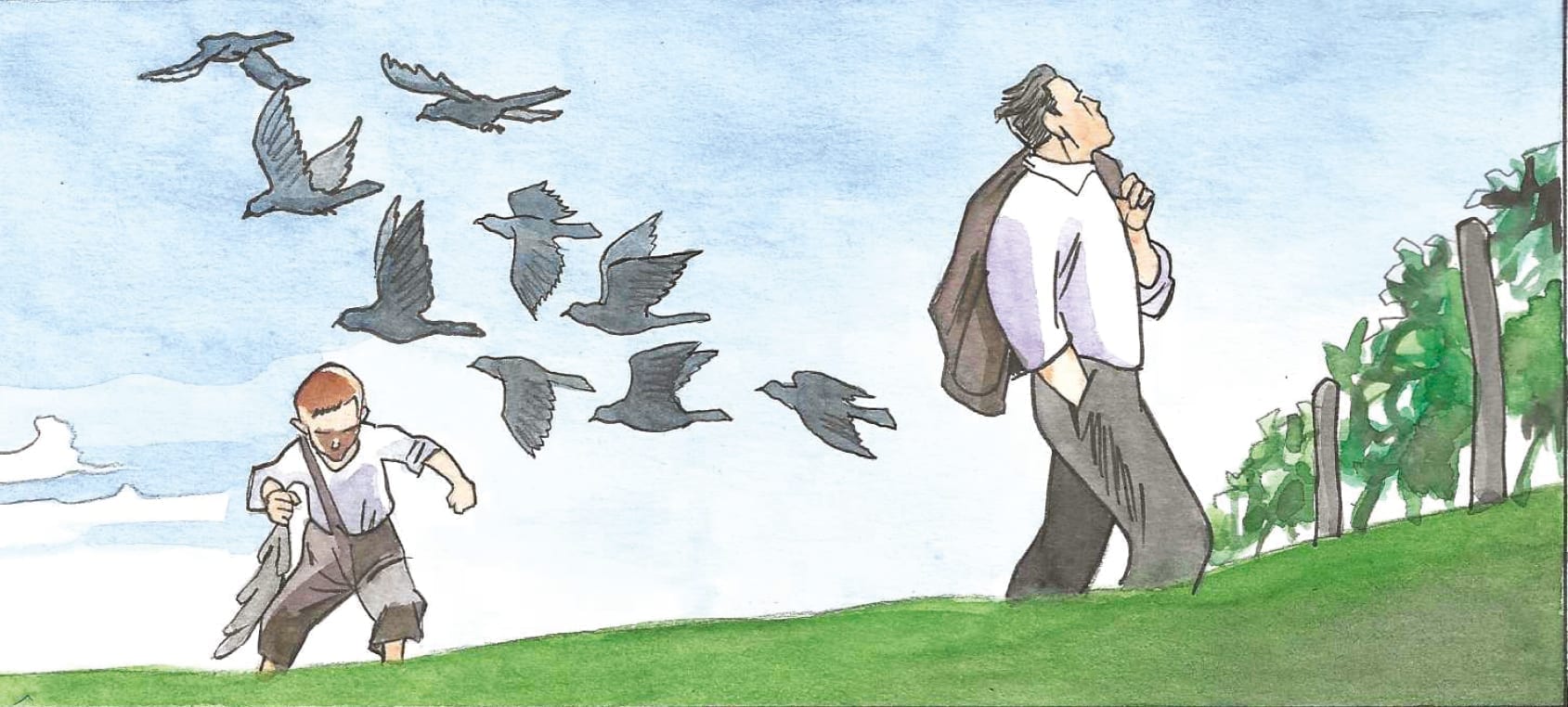
Anguilla e Nuto, from Pavese´s La Luna e i Falò. @Marco D’Aponte
I am trying to really understand friendship (2)
Most of the reflection on friendship aims to find its essence, that which defines it and distinguishes it from other types of relationship. At the heart of this idea, however, lies a tension that makes such a task difficult: by existing as a relationship, friendship becomes dependent on the agents of that relationship, in other words, it becomes dependent on the feelings that emanate from the other person and that sustain the friendship between two people. Because it is only in the form of a relationship, it is difficult to extract from its purely relational character an identity that could be found in all friendships. An essence, therefore, of which all friendships would be an example.
For this very reason, an important aspect of studies on emotions becomes apparent: the identity of friendship, its essence, may or may not be found in a relationship that is perceived as friendship. In other words, there may be friendships that aren’t, if there is indeed a definition of friendship that is arrived at through thought.
On the other hand, if we allow friendship to be any relationship that is defined and felt as such, we will quickly see bonds between people that fall short of the sharing, complicity and benevolence that we would expect in a real friendship.
Like most of the interpretations that have come down on him, it seems clear to me that of all the types of friendship that Aristotle mentions, only that based on virtue can be properly called friendship. We’ll come to that. In relationships based on utility or pleasure – Aristotle’s other two principles for sustaining a friendship – the bond would break as soon as one member of the relationship ceased to provide the other with some utility (for whatever purpose) or pleasure (for example, through changes in their worldview that altered their sense of humour).
For this reason, virtue is first and foremost an indicator that helps to confer ‚value‘ on the individual, and is therefore the basis of ethical judgement. According to Aristotle, it must be present in order to achieve the greatest good attainable through action: happiness.
Loyalty, altruism, courage, perseverance and humility are characteristics of those who possess ‚virtue‘ (aretê), as are kindness, empathy or a taste for the truth. It’s clear to see why Aristotle endowed friendship with the essential requisite of virtue. When we try to understand friendship through examples from our own lives, we see that some of these points are the very fabric of friendship, which is based on good intentions, altruism (wishing the friend well), honesty and unconditional acceptance of the other person. Aristotle’s reflection shows that an individual’s virtue is manifested in his or her relationships, and therefore the „habit of virtue“ tends to establish relationships that go beyond practical interests and pleasures, fulfilling a propaedeutic function for the realisation of happiness.
I’d like to untie a knot here that affects the reflection on friendship, something that should be said and that would make it easier to identify what its essence is. Throughout the history of philosophy, the fact that Aristotle called two types of relationship friendship, which in fact are not, has led to a certain misunderstanding and an unnecessary number of comments. For Aristotle, friendship is based on virtue, and only this type of relationship can be called friendship.
More important, now that we want to think about friendship beyond Aristotelian ethics, is the fact that friendship is characterised by sharing. And the first sharing seems to be that of virtuous qualities, so there must be a certain symmetry in the relationship, the adherence of two people to a certain set of values, the participation of both in a network of principles.